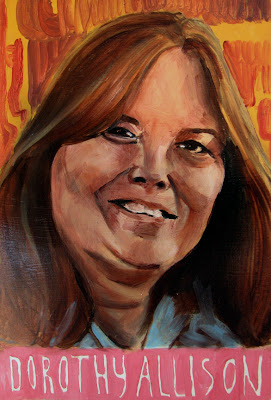Starling's "Why Me, Why Not Me?"
Starling
Jalisa Starling, author
of “Why Me, Why Not Me?”(2014) is a personal essay that explains a tragic death of
her family and how it was difficult growing up. Starling explains her personal
experiences from her youth in transition to an adult. Her purpose is to show
how she accepted God back into her life in order to understand why things
happen the way they did. Her intended audience is all people who have
difficulties accepting the death of loved ones.
Starling’s narrative expresses
how a personal tragedy affected her life. It’s striking for a student essay. I
feel her narrative is relatable to everyone because tragedy has an effect on the
outcome of one’s life. I also feel I could relate to Starling’s story through
my own forms of tragedy, which both destroyed and renewed my faith in God. I understand
the toll that takes on a person. The grief and emptiness. My loss was much
different than hers, but I experienced it with the same confusion and the same
constant wondering thought of “why me?” I too know how hard it is to fall and
then rise again all while searching through the clouds of despair and lost
faith. The struggle is always difficult, but it also makes you wonder if the
strength gained was worth the pain suffered.
Jalisa Starling begins her personal essay with musings of superficial and minor inconveniences of everyday people. She believes simple “why me” situations such as losing a wallet, cracking a cell phone screen, and break ups “wouldn’t even compare to the life changing events that aren’t even thought of in your world (Starling 162).” Starling, for the most part, accuses the audience of having only minor conveniences in their life by assuming with the word “your”. She then reveals that her entire family was murdered. The writer continues on with the retelling of her day the day before the news of her family reached her. As she recalls the memory, her tale is full of trivial things ten year olds are worried about. Starling recalls, “[She] had one important phone call to [her] mother about [her] hair (Starling 164).” Jalisa Starling calls it “important” because at the time, it was priority to her. Upon reveal of her family’s massacre, Jalisa quotes her prayers to God and at this point, the personal essay turns from retelling of the memory to her personal struggle with God. Starling expresses her personal demons as, “[She] felt like [she] had one foot on God’s side and one foot on the Devil’s (Starling 167).” Starling reached her clarity as she finally reached the final stage in grief years later as she came to terms with God. The personal essay comes to a conclusion as Starling reflects on her journey with God and her triumph over a true “why me” situation. Starling concludes with a title drop that instead of asking “Why me?” She asks, “Why not me?”
Precis by Pernida Freeman.
Opinion by Jensine Maxis.
Analysis by Aja Taylor.



